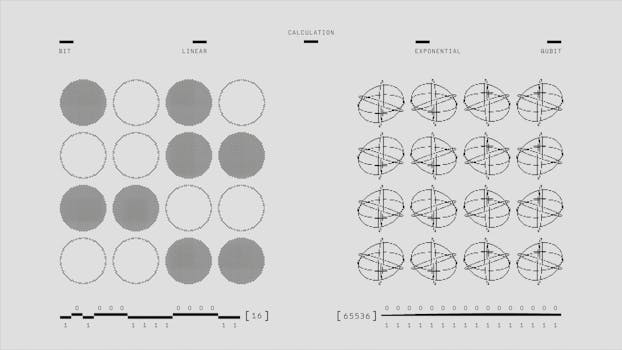
Understanding Quantum Mechanics and its Implications for Reality
Introduction to Quantum Mechanics

Quantum mechanics is a branch of physics that deals with the behavior of matter and energy at the smallest scales. It is a fundamental theory that has been extensively tested and confirmed, and it has led to many breakthroughs in our understanding of the universe. The focus keyword Quantum Mechanics is essential in understanding the intricacies of the physical world. At its core, quantum mechanics is a mathematical framework that describes the behavior of particles and systems in terms of probabilities and wave functions.
The principles of quantum mechanics were first introduced in the early 20th century by physicists such as Max Planck, Albert Einstein, and Niels Bohr. They discovered that, at the atomic and subatomic level, the rules of classical physics no longer apply. Instead, particles and systems exhibit strange and counterintuitive behavior, such as superposition, entanglement, and wave-particle duality.
Implications of Quantum Mechanics for Reality

The implications of quantum mechanics for our understanding of reality are profound. The theory suggests that, at the fundamental level, reality is made up of probabilities and wave functions, rather than definite particles and positions. This has led to many interesting and counterintuitive consequences, such as the idea that particles can exist in multiple places at the same time, and that the act of observation itself can change the behavior of a system.
One of the most famous examples of the strange implications of quantum mechanics is the thought experiment known as Schrödinger’s cat. In this experiment, a cat is placed in a box with a radioactive atom that has a 50% chance of decaying within a certain time frame. According to quantum mechanics, the cat is both alive and dead at the same time, until the box is opened and the cat is observed. This thought experiment highlights the strange and counterintuitive nature of quantum mechanics, and the challenges of applying it to our everyday experience.
Applications of Quantum Mechanics

Despite the strange implications of quantum mechanics, it has many practical applications in our everyday world. Some of the most notable examples include transistors, which are used in electronic devices such as computers and smartphones, and lasers, which are used in a wide range of applications, from medicine to telecommunications.
Quantum mechanics has also led to the development of new technologies, such as quantum computing and quantum cryptography. These technologies have the potential to revolutionize the way we process information and communicate with each other, and they are being actively developed and explored by researchers around the world.
Conclusion

In conclusion, quantum mechanics is a fascinating and complex theory that has profound implications for our understanding of reality. From its introduction in the early 20th century to its current applications in technology and engineering, quantum mechanics has led to many breakthroughs and discoveries. As we continue to explore and develop this theory, we may uncover even more secrets about the nature of reality and the universe.
The focus keyword Quantum Mechanics is essential in understanding the intricacies of the physical world, and its implications for reality are profound. Whether you are a physicist, an engineer, or simply someone interested in learning more about the world around you, quantum mechanics is a fascinating topic that is sure to capture your imagination and inspire your curiosity.



